Sanghyuk Kim
Decoupled Dynamics Framework with Neural Fields for 3D Spatio-temporal Prediction of Vehicle Collisions
Mar 25, 2025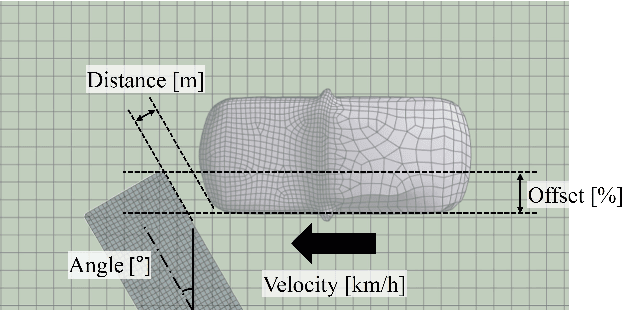

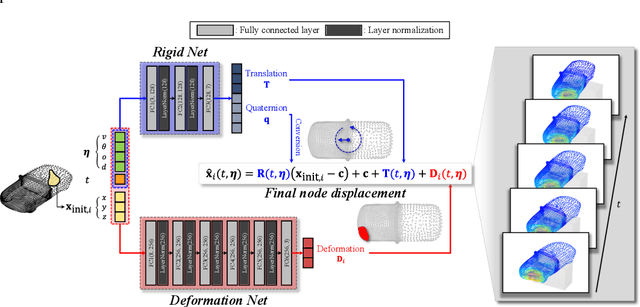
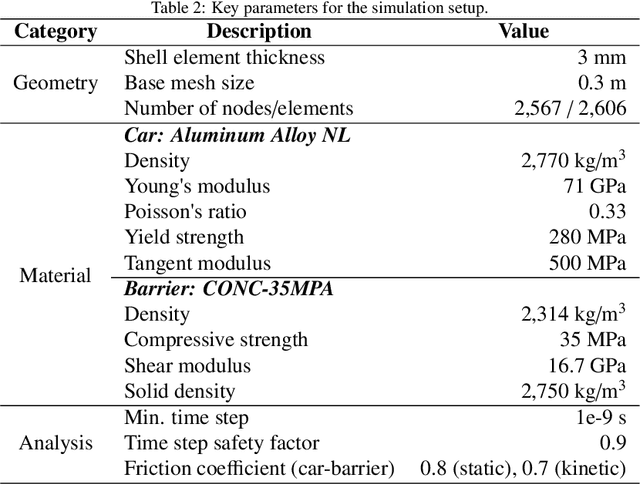
Abstract:This study proposes a neural framework that predicts 3D vehicle collision dynamics by independently modeling global rigid-body motion and local structural deformation. Unlike approaches directly predicting absolute displacement, this method explicitly separates the vehicle's overall translation and rotation from its structural deformation. Two specialized networks form the core of the framework: a quaternion-based Rigid Net for rigid motion and a coordinate-based Deformation Net for local deformation. By independently handling fundamentally distinct physical phenomena, the proposed architecture achieves accurate predictions without requiring separate supervision for each component. The model, trained on only 10% of available simulation data, significantly outperforms baseline models, including single multi-layer perceptron (MLP) and deep operator networks (DeepONet), with prediction errors reduced by up to 83%. Extensive validation demonstrates strong generalization to collision conditions outside the training range, accurately predicting responses even under severe impacts involving extreme velocities and large impact angles. Furthermore, the framework successfully reconstructs high-resolution deformation details from low-resolution inputs without increased computational effort. Consequently, the proposed approach provides an effective, computationally efficient method for rapid and reliable assessment of vehicle safety across complex collision scenarios, substantially reducing the required simulation data and time while preserving prediction fidelity.
AI-powered Digital Twin of the Ocean: Reliable Uncertainty Quantification for Real-time Wave Height Prediction with Deep Ensemble
Dec 07, 2024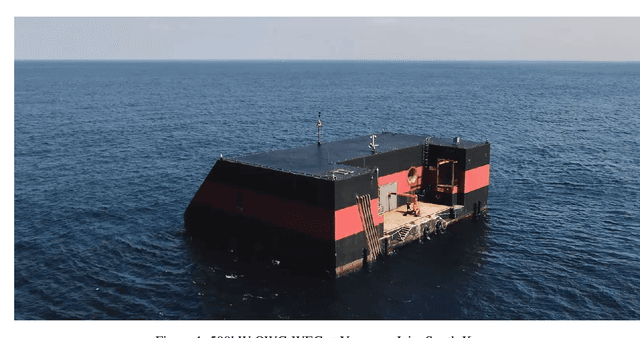

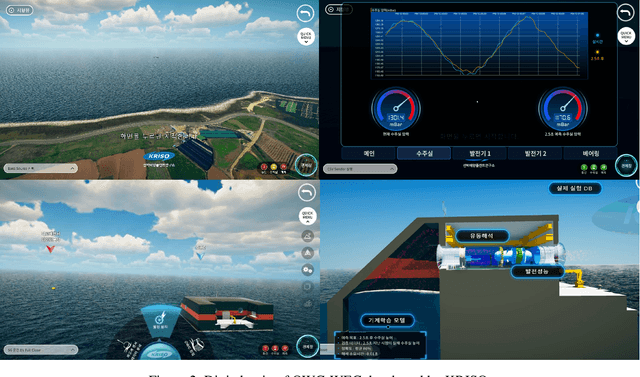

Abstract:Environmental pollution and the depletion of fossil fuels have prompted the need for eco-friendly power generation methods based on renewable energy. However, renewable energy sources often face challenges in providing stable power due to low energy density and non-stationary. Wave energy converters (WECs), in particular, need reliable real-time wave height prediction to address these issues caused by irregular wave patterns, which can lead to the inefficient and unstable operation of WECs. In this study, we propose an AI-powered reliable real-time wave height prediction model, aiming both high predictive accuracy and reliable uncertainty quantification (UQ). The proposed architecture LSTM-DE, integrates long short-term memory (LSTM) networks for temporal prediction with deep ensemble (DE) for robust UQ, achieving accuracy and reliability in wave height prediction. To further enhance the reliability of the predictive models, uncertainty calibration is applied, which has proven to significantly improve the quality of the quantified uncertainty. Based on the real operational data obtained from an oscillating water column-wave energy converter (OWC-WEC) system in Jeju, South Korea, we demonstrate that the proposed LSTM-DE model architecture achieves notable predictive accuracy (R2 > 0.9) while increasing the uncertainty quality by over 50% through simple calibration technique. Furthermore, a comprehensive parametric study is conducted to explore the effects of key model hyperparameters, offering valuable guidelines for diverse operational scenarios, characterized by differences in wavelength, amplitude, and period. The findings show that the proposed method provides robust and reliable real-time wave height predictions, facilitating digital twin of the ocean.
 Add to Chrome
Add to Chrome Add to Firefox
Add to Firefox Add to Edge
Add to Edge